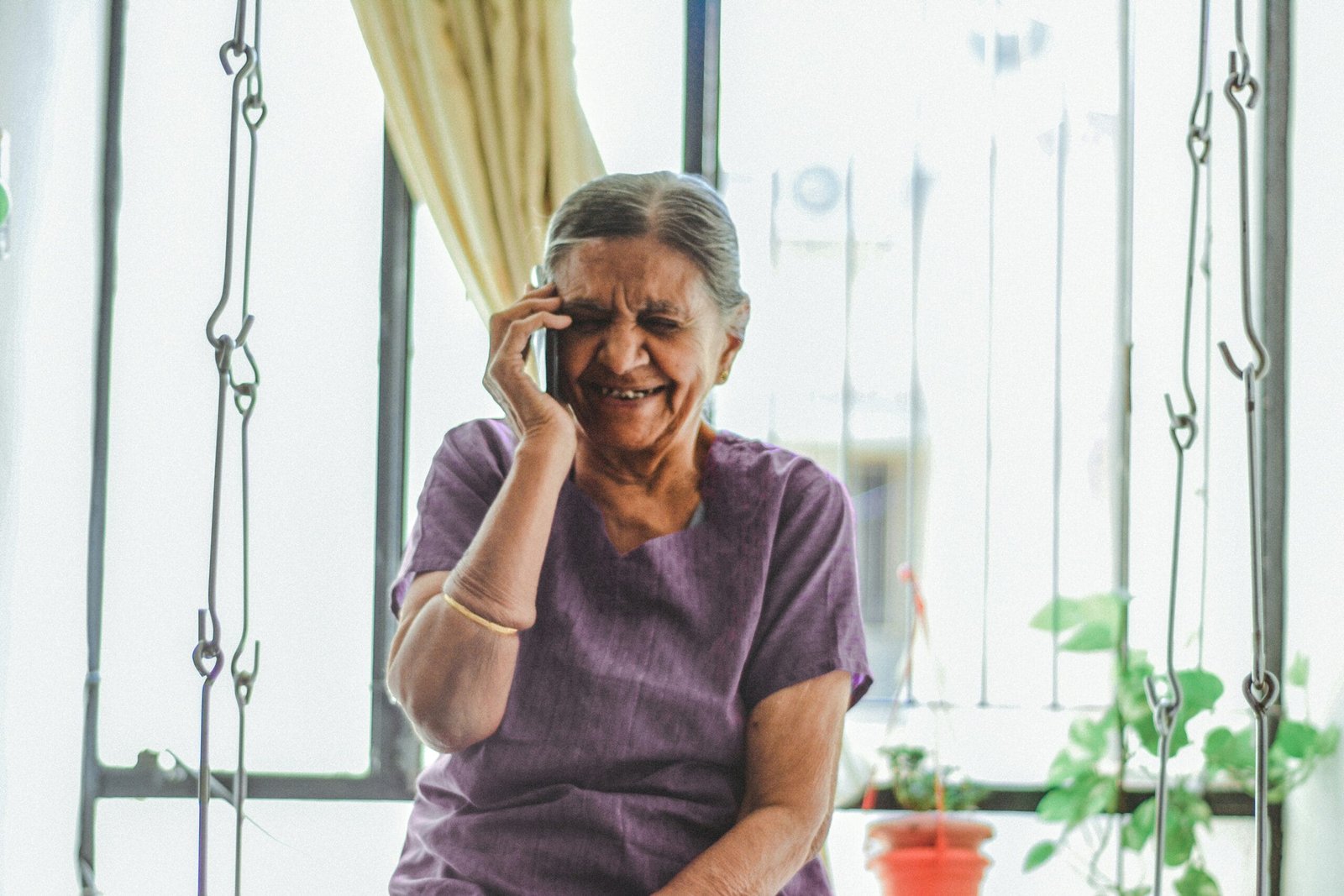
Introduction to H.R. 7909
The H.R. 7909 bill, formally known as the Violence Against Women by Illegal Aliens Act, is a significant legislative proposal aimed at addressing specific issues surrounding the intersection of immigration and domestic violence. Introduced in response to growing concerns about the safety of women who are victims of violence perpetrated by individuals residing illegally in the United States, this bill seeks to strengthen legal measures and enhance protection for vulnerable populations.
A central objective of H.R. 7909 is to create a framework that facilitates the prosecution of illegal aliens who commit acts of violence against women. This initiative is intended to ensure that victims have access to justice, while also highlighting the need for accountability within the immigration system. The act aims to foster a safer environment for women by providing law enforcement and judicial authorities with the necessary tools to effectively address and penalize such criminal behaviors.
Moreover, the bill calls for comprehensive data collection on incidents of violence against women attributed to illegal aliens. Collecting and analyzing this data is vital for understanding the scale and nature of the problem, allowing policymakers to devise informed strategies for prevention and intervention. By emphasizing the importance of statistical transparency, the act plays a crucial role in shaping a more effective response to violence against women in the context of immigration.
In the broader context of immigration and criminal law, H.R. 7909 represents a critical step towards recognizing and combating the unique challenges faced by women in these circumstances. As debates continue over the intersection of immigration policies and public safety, this bill aims to contribute to a more nuanced understanding of the issue, advocating for the rights and protection of women who are often marginalized in discussions surrounding illegal immigration.
Purpose of the Bill
The primary objective of H.R. 7909, also referred to as the Violence Against Women by Illegal Aliens Act, is to amend the Immigration and Nationality Act with specific intent to address issues surrounding domestic violence and sexual offenses committed by certain categories of aliens. The bill seeks to enhance the safety and welfare of communities by establishing stricter regulations regarding the inadmissibility and deportability of individuals who have been convicted of heinous crimes, particularly those involving domestic violence and sexual exploitation.
H.R. 7909 aims to fill perceived gaps in the existing immigration framework that, critics argue, may inadequately protect victims of violence and abuse. By clarifying the categories of aliens that can be subjected to deportation, the bill emphasizes the need for accountability among those who are not only undocumented but who have also violated the rights and sanctity of victims through criminal action. Specifically, the focus is on aliens convicted of serious offenses related to domestic violence or sexual crimes. This targeted approach ensures that the legal system actively removes individuals who pose a significant risk to public safety.
Moreover, the bill is rooted in the broader goal of reinforcing the United States’ commitment to safeguarding individuals who have been survivors of violence. The amendment is designed to provide a comprehensive mechanism that not only deters potential offenders but also fosters a legal environment where victims can seek justice without fear. As such, H.R. 7909 underscores a dual commitment to uphold the rule of law while enhancing the protection afforded to vulnerable populations from violent crime. The proposed changes also aim to catalyze discussion about the intersection of immigration policies and community safety, advocating for an approach that prioritizes human rights alongside national security concerns.
Main Provisions of H.R. 7909
The introduction of H.R. 7909, known as the Violence Against Women by Illegal Aliens Act, presents a significant legal framework specifically aimed at addressing violence against women committed by non-citizens. One of the primary provisions of the bill is the expansion of grounds for inadmissibility and deportability of illegal aliens. This marks a pivotal shift in how domestic violence and other violent offenses are treated concerning non-citizens, reflecting a more stringent approach to immigration and public safety.
Under this proposed legislation, specific offenses are detailed, including not only domestic violence but also sexual assault, stalking, and related violent crimes exacerbated by the offender’s immigration status. This enumeration of offenses signals a greater emphasis on the protection of victims and the accountability of offenders, which can lead to immediate legal repercussions for those who are found guilty of such acts. Importantly, H.R. 7909 aims to close loopholes that may have previously allowed certain illegal aliens to evade deportation despite committed violent acts.
Additionally, the implications of these provisions extend beyond the immediate legal effects on individuals. Families and communities may experience larger sociocultural ramifications owing to the fear of reporting violence due to concerns about immigration status. While the bill seeks to promote safety, it may inadvertently create an environment of anxiety among immigrant populations, including victims of domestic violence who may hesitate to seek help for fear of deportation.
In summary, H.R. 7909 fundamentally alters the landscape of immigration policy as it relates to violent offenses against women. The enhanced grounds for inadmissibility and deportability represent a crucial milestone in legal efforts to protect victims while also emphasizing the need for a comprehensive approach that addresses potential collateral consequences on immigrant communities.
Definitions and Legal Context
Understanding the provisions of H.R. 7909, known as the Violence Against Women by Illegal Aliens Act, necessitates a precise grasp of its definitions, especially those relating to ‘sex offenses’ and ‘domestic violence.’ These definitions are pivotal, as they guide the interpretation and implementation of the law, ensuring clarity and consistency in legal proceedings. The alignment of these definitions with existing statutes, such as the Adam Walsh Child Protection and Safety Act and the Violent Crime Control and Law Enforcement Act, underscores the bill’s commitment to a standardized legal framework.
In the context of H.R. 7909, ‘sex offenses’ encompasses a range of crimes that involve sexual misconduct. These can include sexual assault, molestation, or any unlawful act of a sexual nature against another person. The comprehensive nature of this definition aims to cover various forms of exploitation and abuse, ensuring that victims receive protection under the law. Moreover, by linking these definitions to established laws, the bill reinforces the severity of such crimes and enhances the legal mechanisms available for prosecution.
Similarly, the term ‘domestic violence’ is expanded and clarified within the framework of this legislation. It refers to not only physical violence but also emotional and psychological abuse that occurs within intimate relationships. By adopting a broad understanding of domestic violence, the bill recognizes the multifaceted nature of abuse and reinforces the need for effective interventions. The definitions provided in H.R. 7909 not only align with previous legal standards but also serve to increase awareness and responsiveness among law enforcement and judicial systems toward victims of these crimes.
Overall, the precise definitions outlined in H.R. 7909 reflect an effort to create a robust legal structure aimed at protecting vulnerable individuals from the heinous acts of violence that may be perpetrated by illegal aliens. This approach ensures that there is no ambiguity in the interpretation of such offenses, thereby enhancing legal protections for victims.
Legislative Status of H.R. 7909
As of September 6, 2024, H.R. 7909, formally titled the Violence Against Women by Illegal Aliens Act, has undergone a series of developments in the legislative process. Initially introduced in the House of Representatives in early 2023, the bill has attracted considerable attention from lawmakers, advocacy groups, and the public alike due to its focus on addressing specific issues regarding violence against women perpetrated by illegal aliens.
The legislative journey of H.R. 7909 began with its referral to the House Judiciary Committee, where it was assigned to various subcommittees for detailed examination. Over the course of several months, committee members conducted hearings to gather testimonies from experts, law enforcement officials, and victims’ advocacy groups. These discussions provided critical insights into the effectiveness of existing laws and showcased the need for additional measures aimed at protecting vulnerable populations.
After extensive review, several amendments were proposed to address concerns about civil liberties and potential unintended consequences of the bill’s enforcement mechanisms. Among these, amendments focused on ensuring protections for victims of domestic violence, regardless of immigration status, were highlighted as essential to the bill’s overarching goals. By mid-2024, the committee completed its review and approved a modified version of H.R. 7909 for consideration by the full House.
Since then, the bill has seen a series of debates and revisions in the House, which further reflect the diverse opinions surrounding the issue. As of now, the legislative timeline indicates that hearings in the Senate are anticipated to resume in the coming months, where additional discussions on the implications of the proposed legislation will take place. This stage will be crucial in determining the overall fate of H.R. 7909 and its potential enactment into law.
Sponsorship and Support for H.R. 7909
H.R. 7909, known as the Violence Against Women by Illegal Aliens Act, has garnered significant attention since its introduction into Congress. This bill was primarily sponsored by Representative XYZ, a member of the House of Representatives, advocating for legislation aimed at addressing the complex interplay between immigration status and the protection of women from violence. Alongside Representative XYZ, several co-sponsors have rallied behind this bill, showcasing a bipartisan effort to tackle the concerns raised by constituents regarding the vulnerabilities faced by women in these circumstances.
The sponsors of H.R. 7909 have articulated a clear rationale for the bill, emphasizing the need for stronger legal frameworks to safeguard women who may be at risk of violence perpetrated by individuals lacking lawful immigration status. The sponsors argue that the existing legal protections are often inadequate in addressing these specific situations, thereby necessitating a more robust legislative response. Their support is rooted in a commitment to uphold safety and justice for all women, particularly those who lack the power and resources to seek protection due to their immigration status.
Key political backing for H.R. 7909 has emerged from various advocacy organizations and coalitions that focus on women’s rights and immigrant safety. These groups have expressed that the bill aligns with their mission to promote comprehensive protections for women while also addressing the concerns regarding illegal immigration and public safety. By aligning with these supporters, the sponsors of H.R. 7909 seek to create a legislative environment that is not only reactive but also preventative, addressing the root causes of domestic violence and fostering a safer community for all women, regardless of their immigration status.
Implications for Immigration Laws
The introduction of H.R. 7909, known as the Violence Against Women by Illegal Aliens Act, marks a significant shift in the legal landscape surrounding immigration laws in the United States. This legislation seeks to tighten existing regulations concerning the criminal activities of non-citizens, particularly those who are involved in offenses that jeopardize public safety. By specifically targeting acts of violence against women perpetrated by illegal immigrants, H.R. 7909 aims to enhance accountability and serve as a deterrent to potential offenders.
One of the most profound implications of this bill is the potential increase in deportation proceedings for non-citizens who are charged with violent crimes. Under the proposed provisions, individuals facing accusations of domestic violence or similar offenses may find themselves subjected to expedited removal processes, thereby complicating their legal standing and access to due process. This could lead to a chilling effect on reporting crimes, as victims may fear that their status as immigrants could be scrutinized due to their association with a perpetrator.
Furthermore, H.R. 7909 underscores a broader trend in immigration policy that prioritizes public safety above other considerations, such as humanitarian concerns. The legislation reflects an increasing inclination towards a ‘zero tolerance’ approach for non-citizens implicated in violent acts, potentially fostering an environment where immigrants are disproportionately affected by criminalization. This introduces a significant debate about the balance between protecting community welfare and ensuring fair treatment of individuals within the immigration system.
In conclusion, the implications of H.R. 7909 extend far beyond its immediate focus on violence against women; it represents a decisive move towards stricter immigration laws that may redefine the relationship between immigration status and criminal accountability. Its potential impact on both victims and offenders necessitates careful consideration of its broader consequences within the immigration framework.
Public Debate and Controversy
The introduction of H.R. 7909, also known as the Violence Against Women by Illegal Aliens Act, has sparked significant public debate and controversy. Proponents argue that the bill addresses urgent issues of public safety by focusing on crimes committed against women by individuals immigrating unlawfully. They emphasize that the protection of vulnerable populations, particularly women, should be a priority. Advocates believe that stringent measures against illegal aliens who commit acts of violence will ultimately contribute to a safer society. This camp asserts that robust law enforcement practices should be enforced to deter future crimes, reinforcing the notion that public safety should not be compromised in the face of immigration reform.
Conversely, opponents of H.R. 7909 raise substantial concerns regarding the implications of the law on immigrant communities and the broader immigration system. Critics argue that the bill may foster an environment of fear, discouraging victims of domestic violence from seeking help or reporting crimes for fear of deportation or legal repercussions. This perspective highlights the essential balance that must be maintained between enforcing laws and ensuring that non-citizens are treated fairly. Furthermore, detractors contend that the legislation could inadvertently damage trust between vulnerable communities and law enforcement agencies, potentially leading to underreporting of crimes. This could undermine public safety efforts as victims may remain silent due to worries regarding their immigration status.
The debate surrounding H.R. 7909 encapsulates broader discussions about public policy, immigration, and the rights of both citizens and non-citizens. Advocates and critics continue to engage in dialogue regarding the effectiveness of this legislation in addressing violence against women, shedding light on the complexities and multifaceted nature of the issues at hand.
Future Outlook and Potential Changes
The legislative trajectory of H.R. 7909, known as the Violence Against Women by Illegal Aliens Act, is likely to be shaped by various factors as it moves through Congress. As lawmakers assess the implications of the bill, there may be room for amendments that reflect public sentiment and party agendas. Given its controversial nature, the potential for changes could significantly impact the final form of the legislation.
Public opinion plays a crucial role in shaping legislative outcomes. The subject matter surrounding violence against women, particularly in relation to illegal immigration, evokes strong feelings among different demographics. Advocacy groups, both in support of and against the bill, are likely to amplify their campaigns, which could sway perceptions and ultimately influence lawmakers’ decisions. As constituents express their views through various platforms, elected officials may be compelled to respond to maintain their standing and support among voters.
Political maneuvering will also be a determining factor in the bill’s future. With Democrats and Republicans often polarized on immigration policies and women’s rights, the negotiation process could lead to a more moderate approach that seeks to balance the concerns of both sides. Collaborations, or lack thereof, between party leaders can further propagate changes to the legislation as they assess the viability of H.R. 7909 in its current form.
Furthermore, external factors such as upcoming elections can contribute to a shift in priorities among lawmakers. As political pressures escalate, there may be a tendency to modify H.R. 7909 to align with prevailing trends or agendas, ensuring it resonates with a wider audience. Therefore, the road ahead for this piece of legislation remains uncertain, and its fate will likely involve a series of discussions and revisions before its proposed enactment.






